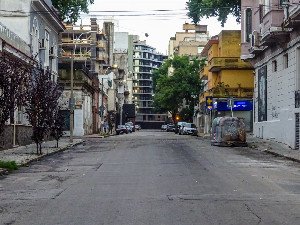Ivana Tucak, Ivica Pavić, Žaklina Harašić
ON THE PUBLIC HEALTH CRISIS
Introduction
On the public health crisis. Explore the impact of public health crises like COVID-19 on liberal democracies, constitutional frameworks, and human rights, analyzing Croatia's response and its relevance for EU emergency law.
Abstract
This article aims to explore the effect of the Public Health Crisis on liberal democracies such as the Republic of Croatia. We will focus on the experiences of the last such crisis - the COVID-19 pandemic, which the WHO declared on March 11, 2020. The article is divided into three parts. The first part of the article provides a conceptual analysis of the term “emergency” or “state of emergency”. Public health crises are only one type of crisis that trigger legal mechanisms intended for situations that go beyond the framework of “normal”. Therefore, these situations differ from normal and are spatially and temporally limited. They all have in common that they are unexpected, unpredictable and demand an urgent and exceptional reaction from the state. Although crises differ in scope, novelty, or secrecy, their separation is methodologically problematic. It is argued that public health emergencies are “scientific” in the sense that state authorities should primarily follow the recommendations of public health experts. The second part of the paper refers to the impact of crises on the state’s constitutional framework, the relations between the executive, legislative and judicial branches and the protection of human rights. This section of the paper will focus on the critical analysis of articles about this problem in the context of the COVID-19 pandemic. Most constitutions define emergencies and mechanisms to protect the democratic order from usurpation of power. However, these terms are broadly formulated and, in practice, have proven unclear. The answers to the posed questions should prove vital if and when the EU decides to adopt a more comprehensive emergency legal framework by providing guidelines on essential issues that may arise. The final part of the article provides an overview of arguments presented by different authors regarding whether the COVID-19 pandemic and the response in Croatia represented a state of emergency as defined under Article 17 of the Constitution. This is notable because the Parliament passed COVID–19 legislation under Article 16, which does not recognise a crisis. This section of the paper explores why the Constitutional Court did not acknowledge this distinction while reviewing pandemic-related legislation. It questions whether the Croatian constitutional framework adequately ensures mechanisms are in place to confirm that an emergency is still ongoing, preventing it from exceeding the “necessary” timeframe and potentially becoming “the new normal.” It also examines whether said framework provides sufficient parliamentary and judicial oversight of the executive branch, as discussed in European Parliament research papers from 2020 and on, showing it to also be an important issue at the EU level. All this is done through an analysis of landmark cases of the Constitutional Court of the Republic of Croatia.
Review
This article addresses a highly pertinent and timely subject: the profound impact of public health crises, particularly the COVID-19 pandemic, on the constitutional and democratic frameworks of liberal democracies. By focusing on the Republic of Croatia as a specific case study, the paper promises a valuable empirical and theoretical contribution to understanding the challenges posed when "normal" legal mechanisms are strained by extraordinary circumstances. The abstract clearly outlines an ambitious scope, moving from a conceptual analysis of "emergency" to a critical examination of constitutional implications and human rights protections, culminating in a detailed analysis of Croatia's legal response to the pandemic. This structured approach suggests a rigorous exploration of how states endeavor to balance urgent public health needs with democratic principles and the rule of law. A significant strength lies in the article's methodical breakdown of the topic. The initial conceptual analysis of "emergency" sets a crucial theoretical foundation, framing public health crises within a broader understanding of situations demanding exceptional state reactions. The subsequent focus on constitutional frameworks, the separation of powers, and human rights protection during such crises is particularly relevant, especially as it critiques existing legal ambiguities and the potential for power usurpation. The paper's intention to critically analyze the Constitutional Court of Croatia's decisions regarding COVID-19 legislation, specifically the distinction between Article 16 and Article 17 of the Constitution, represents a compelling point of original analysis. This deep dive into a specific national context, while also connecting to broader European Parliament research, ensures the findings are both granular and globally relevant, offering insights for the potential development of a more comprehensive EU emergency legal framework. While the abstract promises a comprehensive analysis, potential areas for further emphasis or clarification could enhance the paper's impact. For instance, the discussion around public health emergencies being "scientific" could benefit from a more explicit exploration of the political and ethical dimensions inherent in translating scientific recommendations into state policy, especially when these recommendations impinge on fundamental rights and potentially create public distrust. Furthermore, beyond identifying the current constitutional framework's shortcomings in ensuring ongoing oversight and preventing emergencies from exceeding "necessary" timeframes, the article might consider proposing concrete legislative or procedural reforms, or at least discuss a wider range of comparative models that have successfully addressed these issues. Nevertheless, this article is poised to be a significant contribution to the literature on constitutional law, emergency powers, and public health governance, offering critical insights into the resilience and vulnerabilities of liberal democracies in times of crisis.
Full Text
You need to be logged in to view the full text and Download file of this article - ON THE PUBLIC HEALTH CRISIS from EU and comparative law issues and challenges series (ECLIC) .
Login to View Full Text And DownloadComments
You need to be logged in to post a comment.
Top Blogs by Rating
Who Owns Our Streets? Unpackin...
By Sciaria
The Silent Language of Your Bo...
By Sciaria
The Hidden Scents of Rebellion...
By Sciaria
Favorite Blog
Nature's Immortals: Unlocking...
By Sciaria
The Unseen Pillars: How Crypto...
By Sciaria
When Operations Become Your In...
By Sciaria
Related Research
Pendekatan kontekstual dalam pembelajaran pendidikan agama islam melalui metode karyawisata
Pendidikan dalam komunitas tukang ojek: perspektif dan harapan terhadap sekolah anak
Persepsi mahasiswa generasi z terhadap pembelajaran pendidikan kewarganegaraan di universitas negeri semarang
Share
Notice Board
- PENGARUH PENGGUNAAN MEDIA SOSIAL X AKUN @BIJAKMEMILIH.ID TERHADAP PENINGKATAN KESADARAN POLITIK MAHASISWA DI ERA PEMILU 2024
- RESPONSABILIDAD DEL ESTADO COLOMBIANO EN LA VULNERACIóN DE LOS DERECHOS HUMANOS FRENTE AL CASO BEDOYA LIMA VS. COLOMBIA
- PENINGKATAN KETERAMPILAN MENDESAIN BUSANA MENGGUNAKAN MOODBOARD





